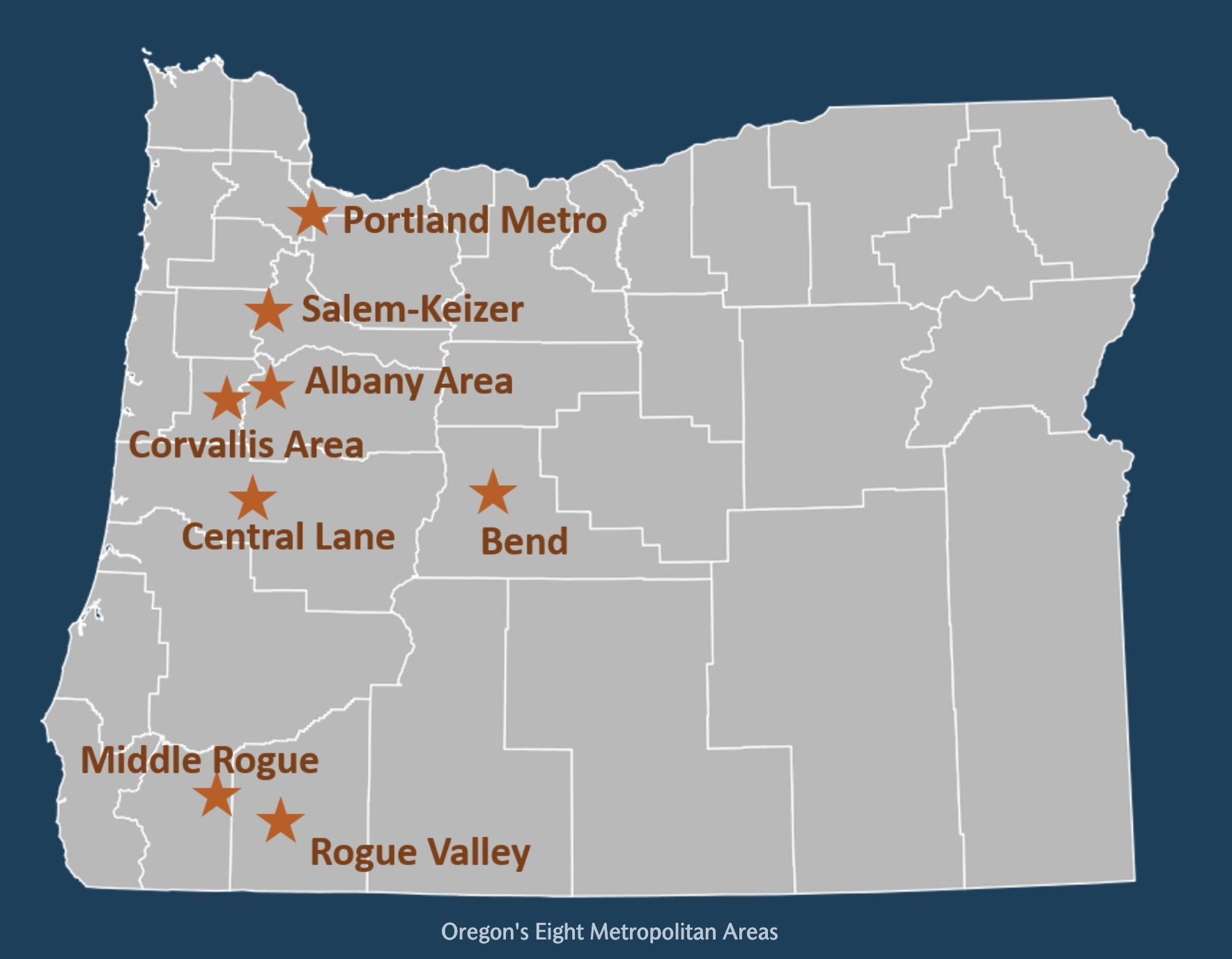Let’s tackle climate change in Central Oregon. Yes, really!
Let’s be honest. It can be overwhelming to grapple with the challenge of our time. Climate change isn’t happening in the distant future. It is here, now. We feel its impacts - and the brunt of those impacts continues to land on those whose voices have long been underrepresented and unheard.
But there is hope. Profound change is afoot, and you can be a part of it!
Right now, Oregon is undergoing a once-in-a-lifetime process that has the power to transform our communities and tackle climate change head-on. The state is drafting new rules that would designate climate-friendly areas in our cities.
These rules would direct growth to those areas and provide abundant, high-quality infrastructure for biking, walking, and transit.
Shaping a safe, equitable, and climate-resilient future
In the State of Oregon, transportation accounts for 40% of our greenhouse gas emissions, making it the largest contributor to climate change.
If we can change how we travel, we can make some big moves to reduce climate pollution.
At the direction of Gov. Kate Brown, the state’s Land Conservation and Development Commission (LCDC) is in the midst of a Climate Friendly and Equitable Communities rulemaking process.
Their goal is “to transform Oregon’s communities to be safe, equitable, sociable, and pleasant places where driving is not required, and the amount of driving is reduced.”
Yes, you read that right!
Oregon's 8 metropolitan areas; 75% of the state’s population works inside these metropolitan areas. Source
This is a big, big deal
If these rules are thoughtfully crafted and implemented soon, they will profoundly alter how our cities are built and how state transportation dollars get spent. That means we’ll see more complete, vibrant, and healthy communities in Bend with access to vital services nearby - with plenty of safe options for getting there that won’t require a car.
Speak up for climate-friendly communities!
LCDC wants to hear from you. Next Tuesday, October 26 from 12:00 - 1:30 p.m., LCDC is hosting an online community forum to gather input from Central Oregon residents. Join via phone or computer at the link below.
Can’t make Tuesday's event? There are additional forums between October 25- October 28. While these events are regionally named, participants are welcome to attend the event that works best for them. Click here to find more dates and times.
Some suggested Talking Points
1. Let’s get to work on climate change now! This rulemaking process needs to be timely and effective. Short extensions (up to 6 months) may be warranted, but please keep acting with urgency and strive to keep the existing timeline in place. Real change is needed in how our cities are built and what types of transportation infrastructure are funded. We need action on climate change now.
2. Please provide the City of Bend and other Oregon cities with financial resources and capacity support from the state, especially from the Oregon Department of Transportation.Cities need help to achieve effective implementation of these rules within this timeline. This support should be clearly outlined during this rulemaking process, so cities can be assured they’ll have what they need to successfully navigate and implement the significant changes these rules will require.
3. All Oregonians should have the ability to live in climate-friendly and equitable communities.Many marginalized communities have historically borne the brunt of climate change impacts and have been underserved by our existing housing and transportation systems across the state. We need to make sure state housing funds are used to build more affordable housing in mixed-use neighborhoods. We need to know state transportation funds are providing accessible, safe transit options in climate-friendly areas.
4. It’s time to invest in infrastructure that supports biking, walking, and rolling, along with transit options. We can’t keep prioritizing car-centric projects. Let’s adopt development standards that focus resources and investments away from car-centric projects and into more forward-thinking transportation options. We are ready!
5. We need to encourage creative ways to build housing with a smaller carbon footprint.If new housing is going to be built, it should be in Climate-Friendly Areas (CFAs). These rules should ensure a meaningful shift in how and where our cities grow by requiring 30-50% of future development be located in CFAs.
6. To implement these rules successfully, cities need straightforward, well-defined paths to follow.A combination of prescriptive and more flexible outcome-based development standards could work well and must be accompanied by accountability, incentives, and enforcement. HB 2001 is a good, recent model to look at that did this well. It is also important to define clear metrics and tools cities can use to demonstrate success.



